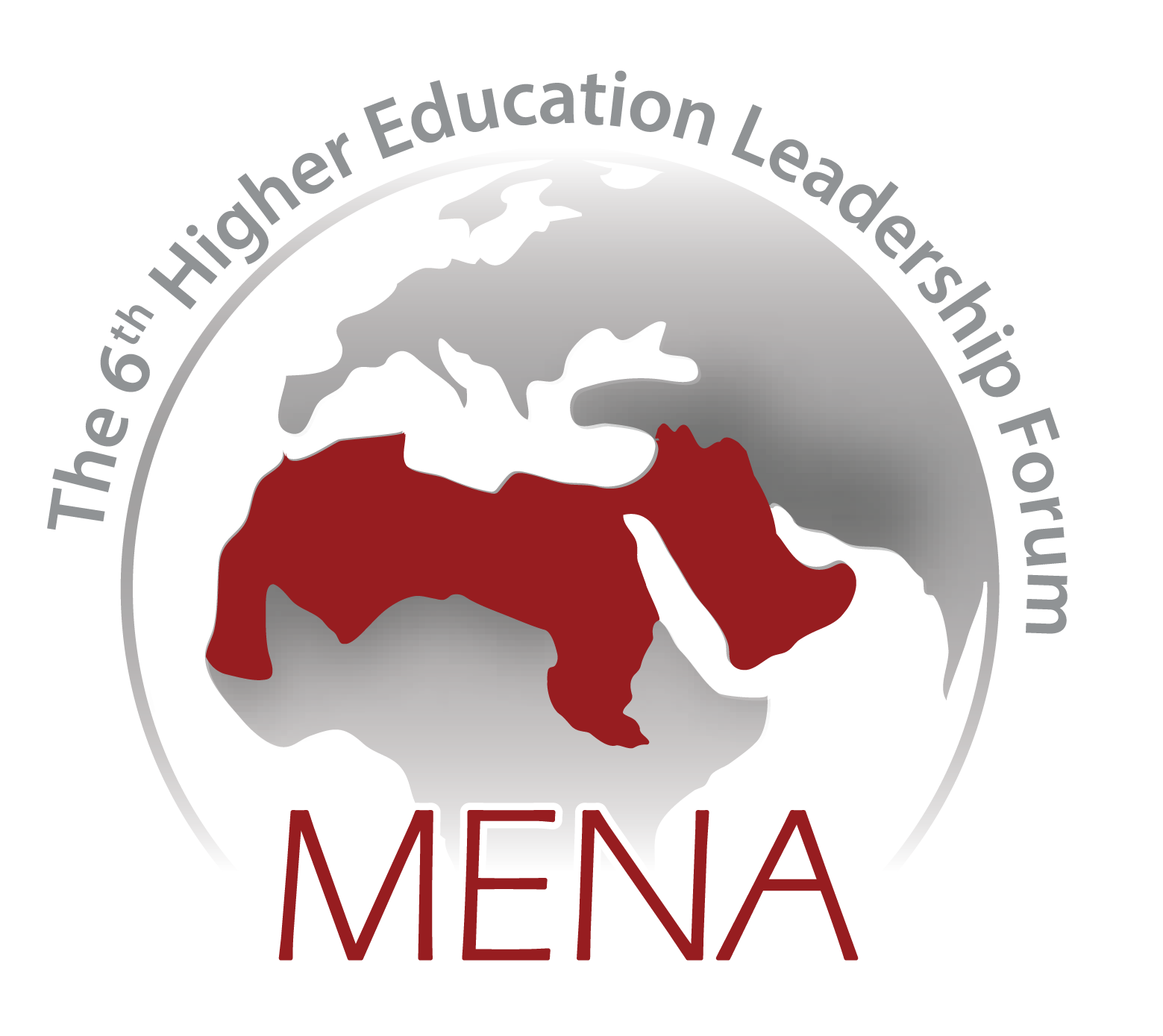The MENA Higher Education Leadership Forum (MENA-HELF) is one of the very few networks established in the region to address specifically higher education leaders and decision makers from not only the Arab region but from across the globe.
The Forum through its various meetings aims at providing a dynamic international platform with a regional focus to address latest trends, developments and issues pertinent to the sector; encourage the exchange of experiences and help identify future directions and strategies.
Participants and contributors to the Forum involves leaders, policy makers, and experts coming from more than 60 countries including but not limited to Presidents and Vice Presidents of Universities, Directors of Vocational Training Institutions, key officials from Ministries of Higher Education and Accreditation Agencies, representatives from IGOs and NGOs concerned with Higher Education as well as senior representatives from the industry and government.
The fourth edition of the Forum will take place in the beautiful and vibrant Emirate of Dubai in the United Arab Emirates from 25th – 27th of February, 2020 and shall be organized under the theme “Higher Education in the Era of the Fourth & Future Industrial Revolutions: Challenges and Opportunities”. The 2020 theme is focused on enabling meaningful and timely conversations about how the ‘Future University’ should look like in light of the Fourth Industrial Revolution and how Universities should adapt to rapidly evolving technological changes to ensure it continues to be relevant.
The Technical Committee of the 4th MENA Higher Education Leadership Forum invites leaders of and experts from the Higher Education Sector to submit original institutional case studies of relevance to this year’s theme.
Submitted case studies shall demonstrate a clear alignment with the main theme and sub-themes of the Forum and shall provide lessons learnt that other institutions of learning can adapt for their own institutions.
Submissions of case studies shall be made against one of the following four streams. Authors are kindly required to specify the stream against which they are submitting their case study when their extended abstract is sent:
Stream 1: The 4th Industry Revolution and the HE Ecosystem
To enable the higher education system to continue to be relevant and responsive to rapid changes, the higher education ecosystem needs to relook at the way it is currently operating. This stream will consider submissions that will address how educational systems/ Higher Education Institutions have successfully led interventions and structural innovations such as implementing open educational systems, flexible and prior learning, competency based learning models, differentiated cohorts
Stream 2: Technological Advances and their Impact on HE
How universities have been utilizing latest technological advancements such as ubiquitous high-speed mobile internet; artificial intelligence; big data analytics; and cloud technology among others to transform the higher education landscape through creating new educational models (i.e. online learning, open learning, MOOCs, etc.) , providing learning flexibility, promoting knowledge creation and wider dissemination and strengthening student mobility.
Stream 3: Preparing Future Graduates through Re-Engineering Learning and Teaching
The focus of this stream is on presenting case studies and good practices where higher education institutions have adopted institutional wide pedagogical strategies and approaches to prepare the future graduates to ‘learn and unlearn’ and enhance their overall learning experience through integrating education with real world experience based on the current trends in the job market. This involves but is not limited to adopting pedagogical innovations that promote experiential learning, competency based learning, self-learning and deep learning (i.e. using peer-to-peer learning, personalized learning, gamifications, virtual reality and augmented reality, simulators etc.) as well as designing responsive curricula or establishing sound learner centric learning environment which promotes student readiness for the future.
Stream 4: The Role of Universities in Re-skilling and Upskilling the Workforce
This stream will consider examples of successful implementation of systems, strategies and partnerships whereas Higher Education Institutions have been working with governments and the industry to skill, upskill and reskill the current and future workforce in the age of digital transformation.
The focus of the submission should be on a case study or good practice of an institutional nature which has shown tangible success and could be recommended as a best practice. All submissions must be original and shall be in line with the overall theme of the Forum and its sub-themes.
The submission shall be intended to be a practical summary to improve practice rather than a formal, rigorous research paper.
The following are specific requirements authors shall comply with when making their submissions.
- Presentations of the best practice/ case study during the Forum are made using power point slides or poster presentation as deemed relevant.
- Every presentation is allocated 20 minutes followed by 5 minutes for Q&As managed by the stream chair.
- Authors of approved case studies shall receive additional information once their paper is approved on the day and time of their presentations.
- All PowerPoint presentations shall be submitted by no later than the 15th of January, 2020. Authors shall also ensure that their registration is complete before this date.
- Case studies which are not presented will not be included in the proceedings of the Forum.
In the case where you are using poster presentation and this was approved by the Technical Committee:
- Ensure that the poster is not larger than 1.0 meter in width and 1.4m in height. A freestanding bulletin board will be available in the session room for the mounting of the poster.
- Use softer colors. Posters should be readable from a distance of approximately 20 feet.
- Poster must clearly highlight the one essential theme that is put across to the audience.

